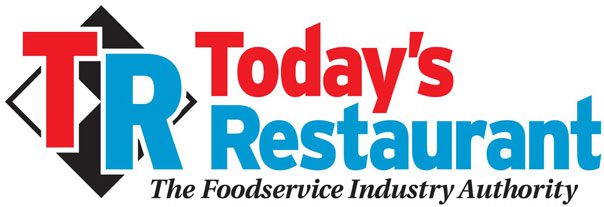
The Rise of Ghost Kitchens in the Age of COVID-19
By John Kelly
As the coronavirus pandemic rages on—and with public health experts concerned about a major surge in cases as we enter the final months of the year—there’s a growing trend in the restaurant world: ghost kitchens. This model, and the closely-related “virtual concept” model, are based on setting up food preparation facilities focused exclusively on online delivery and takeout orders. (The term “virtual concept” specifically refers to models using a restaurant’s existing facilities; ghost kitchens operate out of rented facilities.)
For restaurant owners and managers, it’s easy to see the appeal of ghost kitchens. Opening a brick-and-mortar restaurant involves massive up-front risks and costs: typically, an operator has to sign a multi-year lease, hire full front- and back-of-house teams, and invest in additional construction or remodeling. Ghost kitchens, on the other hand, reduce the costs of real estate, labor, and menu innovation by shifting resources to focus exclusively on off-premise sales channels. Furthermore, the ghost kitchen model obviates the need for customer-facing staff such as servers, expeditors, bussers, etc. In essence, ghost kitchens strip food preparation down to its leanest, most necessary elements.
Of course, there are drawbacks to the model as well. Restaurants lose the opportunity to make a lasting impression on guests by “wowing” them with an incredible dine-in experience. They also lose the ability to upsell on items like alcohol, appetizers, and desserts. And they cannot offer guests the full benefits of the dine-in experience. (Personally, I love engaging with personable waitstaff, eating a good meal with proper accoutrements, and of course, not having to do the dishes at the end.)
Ross Resnick is CEO of Roaming Hunger, an online catering platform with over 18,000 food truck vendor partners. He sees the explosive growth of ghost kitchens as part of a larger movement in food service. “We strongly believe that there is an alignment with the macrotrend in off-premise dining growth, food mobility, and the idea of ghost kitchen space,” Resnick says. “We see food mobility as a cornerstone of essential restaurant infrastructure.”
At Zenreach, we are already hearing a number of success stories about brands which have implemented the ghost kitchen model. One client in particular, a craft-casual hot dog and sausage concept called Dog Haus, has seen tremendous results over the past several months.
“We added ghost kitchens as an option for new and existing franchisees. Now more than ever, the trend towards off-site dining experiences via delivery and pickup is changing the entire restaurant industry,” explains Dog Haus co-founder Hagop Giragossian. “The current crisis has made third-party delivery a crucial component to the restaurant business, and we’re constantly looking for new ways to allow people to experience our food and brand.”
Although the Dog Haus team was well ahead of the ghost kitchen curve—the brand actually opened their first facility pre-pandemic, in the spring of 2019—they began partnering with commercial kitchen brokers such as Kitchen United and CloudKitchens this year to rapidly expand their presence in the space. “With COVID, our timeline has accelerated,” Giragossian says. “We’re working hard to open as many ghost kitchens as possible in the coming months.” The Southern California-based restaurant chain currently operates from six ghost kitchen facilities: one in Pasadena, two in Los Angeles, one in Austin, and two in Chicago.
But Dog Haus did more than simply expand its ghost kitchen operations—they also developed a roster of sister brands to better meet the needs of the growing off-premise dining market. “Earlier this year, we launched The Absolute Brands, a restaurant group comprised of Dog Haus and additional unique brands,” says Giragossian. “Each new brand offers delicious new items that are offshoots of Dog Haus’ signature menu.”
Giragossian reveals that the Absolute Brands concepts have proven to be so popular, they gave their franchisees the option to run them out of their brick-and-mortar locations as well. “Most took the opportunity and are now seeing outstanding results,” he says. “The Absolute Brands have been an amazing resource during this difficult time. We’re seeing franchisees make record-breaking sales—even compared to before COVID.”
It’s clear that consumers are responding to The Absolute Brands in a major way. “Customers are big fans of the ghost kitchen setup,” Giragossian tells us. “Delivery and pickup are booming right now, and with the ghost kitchen model, it’s even easier for our customers to get their favorites delivered right to their door.” Speaking to ongoing consumer concerns about the pandemic, Giragossian explains that “convenience and safety are key right now, and will certainly remain top priorities for months or even years to come. Ghost kitchens are a great resource for nailing both of those aspects.”
Although Dog Haus has seen excellent results, ghost kitchens may not be for everyone. “For a restaurant to succeed in a virtual kitchen, it needs to ensure that it’s prepared for delivery and has established strong partnerships with third-party delivery providers,” Giragossian stresses. He also says restaurants operating ghost kitchens should be ready to reach audiences through nontraditional marketing channels, particularly digital and social. “Restaurants with a limited digital presence may not be a fit. It’s also essential to ensure that the demand and brand recognition is there for expansion and delivery through an off-site location.”
Despite these challenges, it seems clear that the ghost kitchen model is not an ephemeral phantasm. Although dine-in service will never go away, ghost kitchens represent a new and innovative means for brands to get their offerings in front of a wider audience. “Takeout and delivery are a great way to enjoy your favorite restaurants wherever you may be,” says Giragossian. “Restaurant brands are absolutely exploring every way possible of getting their food into their consumer’s hands, and this will lead to great success for ghost kitchens.”
John Kelly is Zenreach’s CEO. He has extensive experience in both ecommerce and ad tech. Prior to joining Zenreach, he was Head of Seller Growth at eBay and VP of sales at Criteo, a company that pioneered retargeting technology. John has a B.A. from Brown University, a J.D. from Georgetown University, and is a Fulbright Scholar. Learn more at https://zenreach.com/





Recent Comments